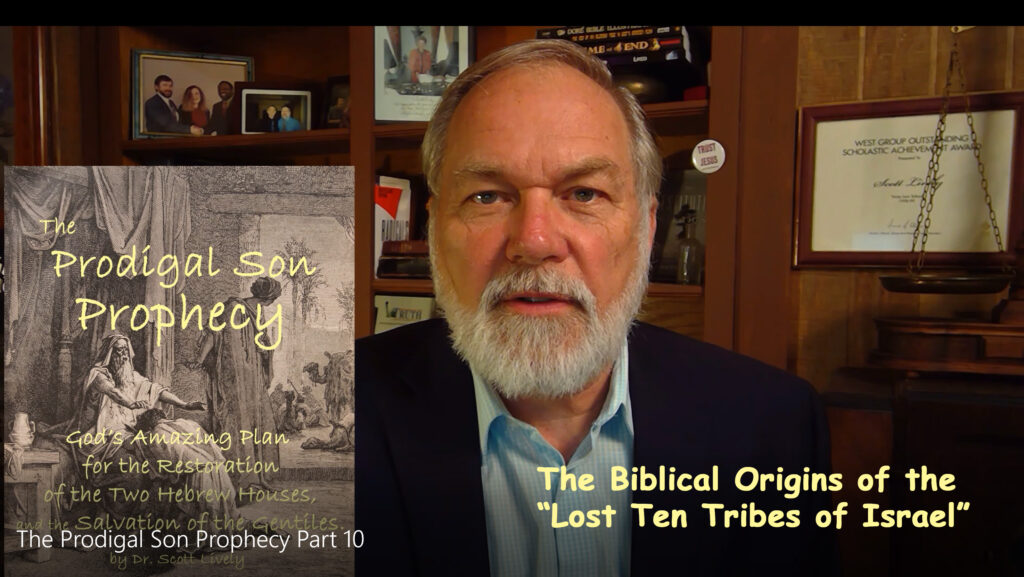
The following article was published on WND.com as one of Scott’s weekly columns in April 2021, to apply the lessons of this period of Biblical history to the present crises in America. The video linked by clicking the above graphic is a reading of the verbatim text of this installment, not the essay below.
Read the PDF of the text of this installment HERE:
King Solomon’s Sins and America’s Civil Divide
As we remnant American Christians struggle with the rapid erosion of our republic and our freedoms at the hands of an unelected super-wealthy elite and their partners in government, it helps to remember that abuse of power is a pattern we have seen many times in the Bible. This pattern includes the story of Solomon, perhaps the richest man of all time, whose fall into extreme moral corruption and profligate public spending shattered the unity of his father David’s Kingdom, normalized sexual perversions, and burdened the people with vast debt and oppressive governmental control.
After building the Temple, Solomon had received a conditional promise from God that if he remained righteous before Him, David’s kingdom would belong to him and his descendants in perpetuity — the same promise He made to David (1 Kings 9:4-7).
Sunday school lessons about Solomon tend to emphasize the great wisdom he displayed in his youth, but when he grew old, his wisdom waned and he broke faith with God, becoming one of the most wicked men generally and the single most prolific polygamist in all of Scripture:
“King Solomon, however, loved many foreign women besides Pharaoh’s daughter—Moabites, Ammonites, Edomites, Sidonians and Hittites [Mamzers and Canaanites]. They were from nations about which the Lord had told the Israelites, ‘You must not intermarry with them, because they will surely turn your hearts after their gods.’ Nevertheless, Solomon held fast to them in love. He had seven hundred wives of royal birth and three hundred concubines, and his wives led him astray. As Solomon grew old, his wives turned his heart after other gods… He followed Ashtoreth the goddess of the Sidonians, and Molek the detestable god of the Ammonites. So Solomon did evil in the eyes of the Lord; he did not follow the Lord completely, as David his father had done” (1 Kings 11:1-6). These demonic religions were characterized by sexual deviance and child sacrifice.
Because of this “The Lord became angry with Solomon…and said “‘Since this is your attitude and you have not kept my covenant and my decrees, which I commanded you, I will most certainly tear the kingdom away from you…Nevertheless, for the sake of David your father, I will not do it during your lifetime. I will tear it out of the hand of your son. Yet I will not tear the whole kingdom from him, but will give him one tribe for the sake of David my servant and for the sake of Jerusalem, which I have chosen’ ” (1 Kings 11: 9-13).
But there was another cause, as well. Biblical history shows it was both his moral corruption and his profligate tax-based spending that broke the Kingdom in two – just as America has been polarized nearly to the point of civil war for the same reasons. Despite Solomon’s phenomenal wealth, beyond all the other kings of the earth (described in 1 Kings 10:14-29), he was never satisfied. It was a weakness we see reflected today among Americas oligarchs. (How much personal wealth and power is enough?)
In the latter days of his reign (just as we see in our land today) Solomon essentially enslaved the Hebrew population to a massive tax-funded social and public works ageda. Then, when Solomon died, his son Rehoboam succeeded him, and his “Democrat” style of oppressive dictatorial government was further institutionalized, despite heavy resistance by the people.
“[T]he whole assembly of Israel went to Rehoboam and said to him: ‘Your father put a heavy yoke on us, but now lighten the harsh labor and the heavy yoke he put on us, and we will serve you’… The king answered the people harshly….[saying] ‘My father made your yoke heavy; I will make it even heavier. My father scourged you with whips; I will scourge you with scorpions’ ” (1 Kings 12:1-4; 13-14).
It was for this reason that the people backed tax reformer Jeroboam the Ephraimite, who had been a high-level servant of Solomon heading the public-works labor forces of the tribes of Joseph (Ephraim and Manasseh). After the prophet Ahijah of Shiloh had prophesied that Jeroboam would become king over the northern 10 tribes, Solomon tried to kill him, so he fled to Egypt (1 Kings 10:26-40). Upon his return, amidst Rehoboam’s refusal to enact reforms, the people rebelled against Rehoboam and made Jeroboam king over them: by that act establishing the Kingdom of Israel (as distinct from Rehoboam’s two-tribe – plus Levites — Kingdom of Judah).
Thus the two houses of the Hebrews that had been united as a 12-tribe confederation through the lifetime of Jacob, through the long sojourn in Egypt, and through both the age of the Judges and the reign of Kings Saul and David, were formally divided into two nations: the House and Kingdom of Judah and the House and Kingdom of Israel – never to be fully united again until the yet-future Millennial Kingdom.
It is this milestone in the history and prophecy of the two houses which prompts me to write this article today. This week I am releasing Installment 10 of my book “The Prodigal Son Prophecy: God’s Amazing Plan for the Restoration of the Two Hebrew Houses and the Salvation of the Gentiles” and Solomon is the dominant figure in this portion of the book. As always, I offer free access to all of my books and books-in-progress here at ScottLively.net. Just hover over the “Scott Lively Books” option in the header and select a book from the drop-down menu.
America is in so many ways a parallel to ancient Israel, and the lessons of Solomon and Rehoboam seem to closely parallel both our current moral and fiscal crises, and our social hyper-polarization. But in the study of the two house Biblical theme we see why and how these patterns illuminate the prophetic calendar and heighten our expectation of the soon second coming of our Messiah.



